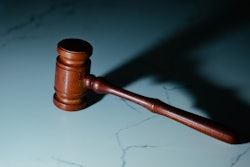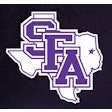Copyright 2013 Philadelphia Newspapers, LLC
All Rights Reserved
"I got up out of my seat and ran up the stairs to the second floor to tell the president," Baldwin later testified.
She said she spoke with Graham B. Spanier and the others about the importance of preserving all files, e-mails, and information about Sandusky for investigators. In the ensuing months, Baldwin said, she strove to keep Spanier apprised of every detail.
"The running joke in Old Main was that I had my own path up the stairs and across the rug to Graham's office," she said.
So she was shocked, Baldwin recalled, when Spanier told reporters and university trustees that he knew little about the Sandusky case until it broke publicly almost a year later. In time, she said, she would come to believe he was part of a cover-up.
"Of course he knew" about the probe, Baldwin told a grand jury last year.
Unsealed this week by a Harrisburg judge, Baldwin's testimony reveals for the first time how she transformed from the president's right-hand legal adviser to possibly the most damning prosecution witness in the conspiracy and perjury case against Spanier, which could go to trial next year.
Instead of cooperating with investigators, Baldwin said, Spanier deliberately hid information and sought to keep the board of trustees in the dark about the expanding criminal investigation.
Lawyers for Spanier, former vice president Gary Schultz, and former athletic director Tim Curley have accused Baldwin of breaching attorney-client privilege by testifying against them. They have asked Dauphin County Court Judge Todd A. Hoover, who is overseeing the case, to throw out her testimony, bar her as a witness, and dismiss charges of perjury.
"I think of this as a crashing failure of due process," said Elizabeth Ainslie, Spanier's attorney. "No one explained to Graham B. Spanier that the person he thought was his lawyer was not his lawyer."
Baldwin was present when each of the three men testified in 2011 before the grand jury investigating Sandusky.
She maintains she was there representing Penn State, not the three individuals. "There was no doubt that I was representing the Pennsylvania State University," she later told another grand jury, the one that charged Spanier.
It was her testimony before that panel that Hoover ordered unsealed this week after a pretrial meeting with lawyers.
A former Pennsylvania Supreme Court justice, Baldwin began serving as Penn State's general counsel in February 2010, 10 months before learning that the state Attorney General's Office was investigating Sandusky.
Spanier, she said, had told her to accompany Schultz and Curley while they appeared before the grand jury. Paterno decided to use his own lawyer, a fact that raised Spanier's interest, she said.
Baldwin testified that Spanier, Schultz, and Curley told her they had no e-mails or files that could help the case, she said.
Only later did she learn about the e-mails between Schultz and Curley in which they appear to discuss two incidents involving Sandusky and young boys in a campus shower. Spanier was looped in on two of those e-mails. Schultz also had a file on Sandusky that he never shared with Baldwin, she said.
After Schultz and Curley told the grand jury they had no knowledge of sexual allegations against Sandusky, members of the Attorney General's Office asked to meet with Spanier to discuss the case. Baldwin said she warned him not to be rattled.
"Because being interviewed by the Office of Attorney General is serious in itself, I said, 'You know, when they question you, Graham, they are going to talk about things like - they are going to use words like sodomy and pedophile," Baldwin recalled, according to her testimony. "I didn't want him to be shocked by the questioning."
Baldwin said investigators asked Spanier about several incidents, including a sexual assault in a shower witnessed by Penn State assistant coach Mike McQueary.
Spanier told them he was unaware of the complaints, Baldwin said. She considered the questioning intense, but she was struck by how unfazed the president seemed.
"That was nothing," Baldwin later testified he told her. "Graham is a very bright man. He knows he is a very bright man. He believes that once he explains something to somebody and he tells them, they believe it and that is it."
Within a few weeks, Spanier was called to testify before the grand jury. Baldwin said she prepared him by explaining the grand jury process and what she expected it would ask him.
There, Spanier also testified that he did not know that the accusations against Sandusky were sexual.
Meanwhile, Baldwin said, the Penn State trustees were growing anxious about the rumors swirling around Sandusky and began asking Spanier to fill them in.
Baldwin said she told Spanier he was free to discuss his grand jury testimony with the board, but he told trustees he had been advised not to speak of it, according to her testimony.
During a board meeting, Baldwin was surprised when Spanier abruptly told her that she could leave the room and that he would answer their questions.
Baldwin testified that she had expected Spanier to keep the board up to date with the status of the Sandusky investigation, but instead, he told board members that the investigation had to do with Sandusky alone, not Penn State, and minimized the seriousness of it.
In November 2011, Baldwin learned that Sandusky, Schultz, and Curley would be indicted. Spanier, who was not charged until a year later, did not inform board members of what was happening until the news broke publicly, Baldwin said.
Even then, he seemed to want to keep the board out of it, she said.
"He said that he had been president for 16 years," Baldwin said, "and, actually, he could handle crises - and he could handle this crisis."
610-313-8113 @AESteele
Terms and Conditions Privacy Policy



































